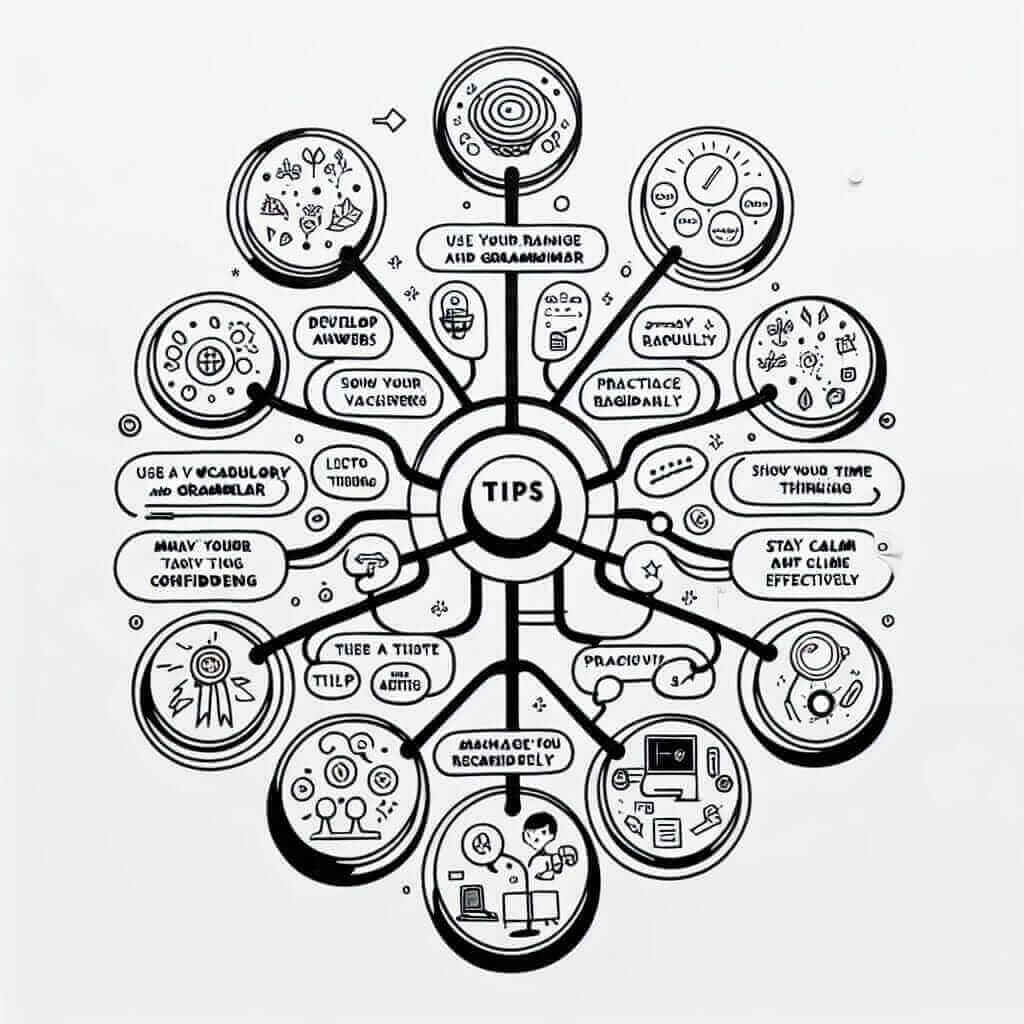The IELTS Speaking test is a vital component of the IELTS exam, assessing candidates’ speaking abilities in English under timed conditions. Part 3 of the speaking test often poses the greatest challenge, as it requires test-takers to provide in-depth answers and engage in more abstract discussion. Understanding the nuances of this section can greatly enhance your performance. Below, we delve into practical tips, real-world examples, and methods to excel in Speaking Part 3.
Understanding IELTS Speaking Part 3
Part 3 of the IELTS speaking test lasts for about 4-5 minutes. It follows the two initial parts: Part 1 (Introduction and Interview) and Part 2 (Long Turn). In Part 3, the examiner will ask questions revolving around broader and more abstract topics related to the theme in Part 2. This part assesses your ability to discuss complex ideas, present arguments, justify opinions, and evaluate issues.
Example Question: If Part 2 asked you to talk about a memorable travel experience, Part 3 might ask questions like:
- What are the advantages and disadvantages of traveling internationally?
- How has tourism changed in your country over the years?
- What impact does travel have on the environment?
Essential Tips for IELTS Speaking Part 3
1. Develop Your Answers
Ensure your responses are comprehensive and well-rounded. Avoid short answers and always aim to elaborate.
Example:
Question: What are the disadvantages of a fast-paced lifestyle?
Response: “A fast-paced lifestyle, while exhilarating, has several drawbacks. For instance, individuals often experience significant stress and burnout due to constant deadlines and high expectations. Moreover, personal relationships can suffer as there’s hardly any time left for meaningful social interactions. Ultimately, such a lifestyle may also lead to long-term health issues, such as chronic fatigue and mental health problems.”
2. Use a Range of Vocabulary and Grammar
Utilize advanced vocabulary and varied grammatical structures to display your language proficiency. Show that you can use different tenses, connectives, and complex sentences.
Example:
Question: How has technology impacted education?
Response: “Technology has revolutionized education in numerous ways. Primarily, it has facilitated greater access to information. For instance, students can now access a plethora of online resources and digital libraries with ease. Additionally, educational technology promotes interactive learning, which can enhance student engagement and understanding. However, it could be said that an over-reliance on technology might lead to reduced critical thinking skills as students often resort to quick online searches rather than deep analysis.”
3. Show Your Critical Thinking
Analyze both sides of a topic and present balanced arguments. This demonstrates your ability to think critically and communicate effectively.
Example:
Question: Do you think the benefits of technology outweigh the disadvantages?
Response: “Technology undeniably brings numerous benefits, such as improved communication and efficient information dissemination. Nonetheless, it presents several disadvantages too. For example, over-dependence on technology can diminish face-to-face social skills. From a balanced perspective, while technology is invaluable in advancing society, it’s essential to maintain a critical view and address its potential downsides.”

Common Mistakes to Avoid
1. Giving Short Answers
Avoid providing brief responses that don’t fully address the questions. Always elaborate and support your points.
2. Repeating Part 2 Answers
Don’t merely repeat what you said in Part 2. Though the topics may be related, show that you can discuss the subject from different angles.
3. Getting Off-Topic
Stick to the question asked. Rambling off-topic can confuse the examiner and lower your band score.
Practice Strategies
1. Mock Discussions
Engage in mock discussions with peers or teachers on various topics to simulate the test environment. Focus on providing detailed and structured answers.
2. Recording and Reviewing
Record your practice sessions and review them to identify areas for improvement, such as speaking speed, clarity, and content organization.
3. Expanding Vocabulary
Read articles, listen to podcasts, and watch debates on diverse topics to expand your vocabulary. Practice using new words and phrases in your responses.
4. Joining Speaking Clubs
Participate in English-speaking clubs or online forums where you can practice discussing abstract and complex ideas.
Conclusion
Mastering IELTS Speaking Part 3 requires practice, a rich vocabulary, and the ability to think critically. By understanding the format, expanding your answers, avoiding common mistakes, and engaging in targeted practice, you can significantly improve your performance.
For your journey towards IELTS success, remember to stay consistent and seek feedback. Feel free to leave comments or explore other articles on our website for more tips and strategies. Good luck!